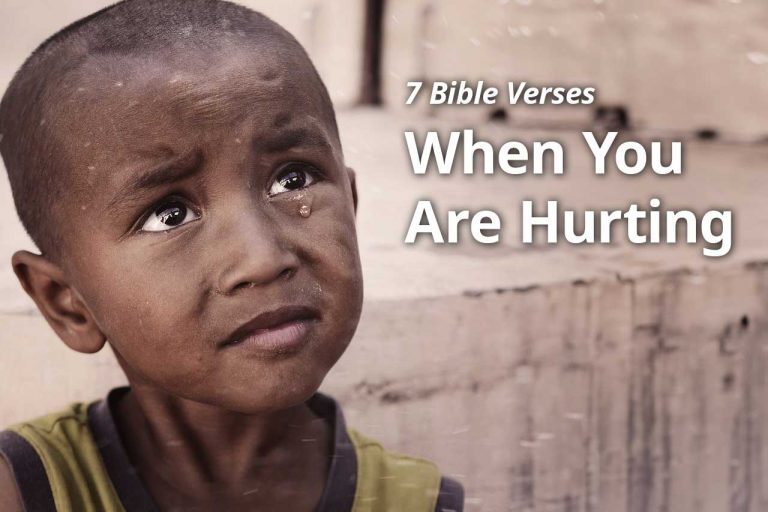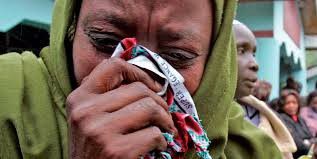Ŋen ŋe-Yuanna igi gənanaid̶ia mamuḏiya
(Luka 7:18-35)1 Na ndə Yesu gërrəŋaicu ṯaləmis ilëɽəŋu ŋen d̶əge, isi red̶ neməñe eɽijan, gënəŋu nəŋəməñe alo yakəl ṯa aŋërrəŋaid̶i ŋen na aŋəɽwate ŋen ŋə-Rəmwa irnuŋ egen. 2 Ŋen Yuanna gəfo isijən nəŋəne ŋen iŋi Almasiya gid̶u, nəŋəmad̶weiṯi ṯaləmis ilëɽəŋu, 3 ṯa aiyəmeɽəd̶e ṯa, “Agaɽo ed̶a igi ñagəlwaɽənṯəmau ṯa gid̶i aŋela walla ñagaṯurṯia ed̶a gərto?” 4 Yesu nəŋəluɽəbiṯi eŋen nəŋaṯa, “Mbər ñəlwaɽəṯi Yuanna ŋen ŋəlaŋge ildi ñagəseicəlo na ñagənəlau. 5 Led̶a ildi ləŋəlisi lid̶ənu ləseid̶ia, na led̶a ildi ləɽo ləbəco lid̶ənu ləbərlda, na led̶a ləgəro lid̶ənu ltəɽe, na led̶a ləɽo ndul lid̶ənu lənna, na led̶a laiyo latud̶inu, na ŋen ŋəŋəra ŋërrəŋeid̶ənu eled̶a ləɽo ləbai aŋəno. 6 Na ed̶a gaŋəra nano igi gero gəfid̶a ŋen ŋənəŋ eŋen ŋəlëɽəñi iŋi ŋəmid̶ia gəbëɽəŋeinia.”
7 Ndə led̶a ildi ləbəɽo, Yesu nəŋəlwaɽəṯi led̶a lərraid̶o eŋen ŋe-Yuanna ṯa, “Ñagabəɽo ed̶əñwa ṯa, ñəseici wande? Ṯa ñəseici pəɽwapəɽwa id̶i d̶əbera d̶ətësia? 8 Orn ñagabəɽo ed̶a? Ṯa ñəseici ed̶a gëɽənu ndrenia nano nəmətiaŋəno? Led̶a ildi lëɽənu ndrenia nano nəŋəra kaiñ lënəŋulu lafo eneɽa nənələŋ noɽra. 9 Orn ñagabəɽo ed̶a? Ṯa ñəseici nabi? A, igandəlwaɽəṯia d̶eṯəm ñagaseicu ed̶a goɽra gəməñaṯo nabi. 10 Fəŋu Yuanna igi ŋen ŋəwërd̶ənu ŋen ŋanṯa ŋu,
‘Seid̶u egad̶waṯa ed̶a ŋa nëiñua, gerṯo ŋen ŋəlëɽəñi
igi gid̶i aŋaṯoɽaṯe d̶ad̶ ŋa nëiñua’.
11 Đeṯəm igandəlwaɽəṯia ṯa, Yuanna igi gənanaid̶ia mamuḏiya goɽra gaməñaṯo led̶a ildi ləməṯia. Orn ed̶a igi gəta gəməñaṯo led̶a pred̶ eŋələŋe ŋelo, gënəŋu goɽra gaməñaṯəma, 12 iliga le-Yuanna igi gənanaid̶ia mamuḏiya na d̶əñid̶i məldin, ŋələŋe ŋelo ŋananeinu ŋen ŋubwa, na led̶a ildi ləbëndəjeicia ŋen ŋəɽwano lënəŋulu ləbënṯia ŋabəɽaŋa. 13 Ŋen Yuanna gəmulu geṯo nabiya pred̶ na Alganun yi-Musa laɽwata eŋen iŋi. 14 Na ndə ñagəɽwad̶aṯa ñagəbəŋënṯia ŋen iŋi, Yuanna gaɽo Iliya igi gəlwaɽəniau ram ṯa gid̶i aŋela. 15 Ŋgiṯr led̶a ildi lerṯo nënəñia alne ŋen iŋi.
16 “Led̶a ildi ləfo d̶əñid̶i larno wande? Lënəŋulu larno ñere iñi ñəɽaŋa nəsuk ṯaiñurndəd̶u ṯaiñəɽwataid̶o ṯa,
17 ‘Ñagëriṯənde ŋəmëŋia orn nəñerṯe ñagərṯia,
ñagaləŋəṯənde d̶eicianod̶a orn nəñerṯe ñagəbara!’
18 Ŋen ŋanṯa Yuanna geṯo nəŋerṯe gəsa aicəba walla gəṯia ŋawa ŋenəb, na led̶a ldaṯa ṯa, gënəŋu gerṯo usila nano geicia! 19 Orn Id̶ia gə-Led̶a geṯo nəŋəse nəŋəṯi, na led̶a ldaṯa ṯa, ‘Seicr, ed̶a igi gamiñod̶əñano gəṯia ŋawa ŋenəb, igi gəɽo rappa led̶ala ildi lətəmeicia ṯolba na led̶ala leicia!’ Đələŋeṯa ŋen nəsi d̶ërrəŋeinu ṯa d̶aɽo d̶eṯəm ŋəmëɽriaŋa ŋəlëɽəŋu.”
Ŋen ŋirnuŋ igi gero gəbëndia ŋen ŋə-Rəmwa
(Luka 10:13-15)20 Orn gënəŋu nəŋgariñaṯe irnuŋ goɽra igi gid̶au aŋwara ywaiña, ŋen ŋanṯa led̶a ildi ləfau lero laŋgiṯia ŋen eŋen ŋeicia na lero loɽəbaṯa Rəmwa nano, 21 “Nəŋaṯa, ya alo yi-Kurisin! Agid̶i ŋaneini ŋen ŋubwa. Ya alo yi-Beṯsaiḏa! Agid̶i ŋaneini ŋen ŋubwa, gəbanṯa aŋwara yoɽra isi yid̶ənu eñaŋ yafo yid̶ənu alo yi-Sur na alo yi-Siḏa, ṯa led̶a lalo yakəl laŋgiṯu ŋen eŋen ŋeicia ram ldəɽaŋe egobwan ldëɽəni suwal nano ldoɽəbaṯe Rəmwa nano. 22 Orn igandəlwaɽəṯia ṯa, eloman ildi Rəmwa rid̶i arwakəme alo d̶akəmia ed̶alo d̶id̶i ad̶oɽreṯe d̶əməñaṯo d̶akəmia d̶alo yi-Sur na d̶alo yi-Siḏa. 23 Na aganəŋa ya alo yi-Kafrnawum agwonaṯa agəbeinia elo? Agid̶i ŋirəweicini alo eled̶a ildi laiyo. Ŋen ŋanṯa gəbanṯa aŋwara yoɽra isi yid̶ənu eŋa yafo yid̶ənu alo yi-Səḏum, ṯa led̶a lalo yi-Səḏum lafo d̶əñid̶i məldin. 24 Orn igaŋəlwaɽəṯia ṯa eloman ildi Rəmwa rid̶i arwakəme alo, d̶akəmia d̶əlaɽəŋa d̶id̶i ad̶oɽreṯe d̶əməñaṯo d̶akəmia d̶alo yi-Səḏum.”
Eṯañr nano na ñəmiñəniano
(Luka 10:21-22)25 Iliga ildei Yesu nəŋaṯa, “Bapa igaŋërṯiaŋa nano ŋəŋgi agəɽo Eləŋ gelo na galo, ŋen ŋanṯa agaləbəjaico led̶a ŋen iŋi ildi lələŋeṯo ŋen nəsi na ildi lwaiña ŋəṯəɽa orn agërrəŋaicu ñere ŋen. 26 Đeṯəm Bapa, agid̶u ṯia ŋen ŋanṯa ŋen ŋəlaɽəŋa ŋid̶iaŋa agəŋəra nano.” 27 Na Yesu nəŋeiṯi ṯaləmis ṯa, “Bapa gəlëɽəñi ganaicəñe ŋen pred̶ na ed̶a gero gələŋeṯo Id̶ia, illi Đaṯa, na ed̶a gero gələŋeṯo Đaṯa, illi Id̶ia na ed̶a igi Id̶ia gwonaṯa gəmërrəŋaicia. 28 Eṯañr nano ñaŋ pred̶ ñəŋgi ñagicwaro na ñagerṯo ŋen nano ŋinia, na igid̶i endənaice d̶əmiñəniano. 29 Meinr ŋen nano ŋəlëɽəñi na ñërrəŋeini ŋen iñi, ŋen ŋanṯa egad̶ərnaṯaralo na egaṯa egare na ñagid̶i ñafid̶i d̶əmiñəniano ŋen ŋanṯa nusila enalo. 30 Ŋen ŋanṯa ŋen ŋəlëɽəñi ŋandid̶ia ñagəŋəra nano na d̶inia d̶əlëɽəñi d̶ëbia.”
John the Baptist
(Luke 7.18-35)1 After Jesus had finished instructing his twelve disciples, he left and began teaching and preaching in the towns.
2 John was in prison when he heard what Christ was doing. So John sent some of his followers 3 to ask Jesus, “Are you the one we should be looking for? Or must we wait for someone else?”
4 Jesus answered, “Go and tell John what you have heard and seen. 5 The blind are now able to see, and the lame can walk. People with leprosy are being healed, and the deaf can hear. The dead are raised to life, and the poor are hearing the good news. 6 God will bless everyone who doesn't reject me because of what I do.”
7 As John's followers were going away, Jesus spoke to the crowds about John:
What sort of person did you go out into the desert to see? Was he like tall grass blown about by the wind? 8 What kind of man did you go out to see? Was he someone dressed in fine clothes? People who dress like that live in the king's palace. 9 What did you really go out to see? Was he a prophet? He certainly was. I tell you that he was more than a prophet. 10 In the Scriptures God says about him, “I am sending my messenger ahead to get things ready for you.” 11 I tell you no one ever born on this earth is greater than John the Baptist. But whoever is least in the kingdom of heaven is greater than John.
12 From the time of John the Baptist until now, violent people have been trying to take over the kingdom of heaven by force. 13 All the Books of the Prophets and the Law of Moses told what was going to happen up to the time of John. 14 And if you believe them, John is Elijah, the prophet you are waiting for. 15 If you have ears, pay attention!
16 You people are like children sitting in the market and shouting to each other,
17 “We played the flute,
but you would not dance!
We sang a funeral song,
but you would not mourn!”
18 John the Baptist did not go around eating and drinking, and you said, “That man has a demon in him!” 19 But the Son of Man goes around eating and drinking, and you say, “That man eats and drinks too much! He is even a friend of tax collectors and sinners.” Yet Wisdom is shown to be right by what it does.
The Unbelieving Towns
(Luke 10.13-15)20 In the towns where Jesus had worked most of his miracles, the people refused to turn to God. So Jesus was upset with them and said:
21 You people of Chorazin are in for trouble! You people of Bethsaida are in for trouble too! If the miracles that took place here had happened in Tyre and Sidon, the people there would have turned to God long ago. They would have dressed in sackcloth and put ashes on their heads. 22 I tell you on the day of judgment the people of Tyre and Sidon will get off easier than you will.
23 People of Capernaum, do you think you will be honored in heaven? You will go down to hell! If the miracles that took place in your town had happened in Sodom, it would still be standing. 24 So I tell you on the day of judgment the people of Sodom will get off easier than you.
Come to Me and Rest
(Luke 10.21Luke 22)25 At that moment Jesus said:
My Father, Lord of heaven and earth, I am grateful that you hid all this from wise and educated people and showed it to ordinary people. 26 Yes, Father, this is what pleased you.
27 My Father has given me everything, and he is the only one who knows the Son. The only one who truly knows the Father is the Son. But the Son wants to tell others about the Father, so they can know him too.
28 If you are tired from carrying heavy burdens, come to me and I will give you rest. 29 Take the yoke I give you. Put it on your shoulders and learn from me. I am gentle and humble, and you will find rest. 30 This yoke is easy to bear, and this burden is light.


